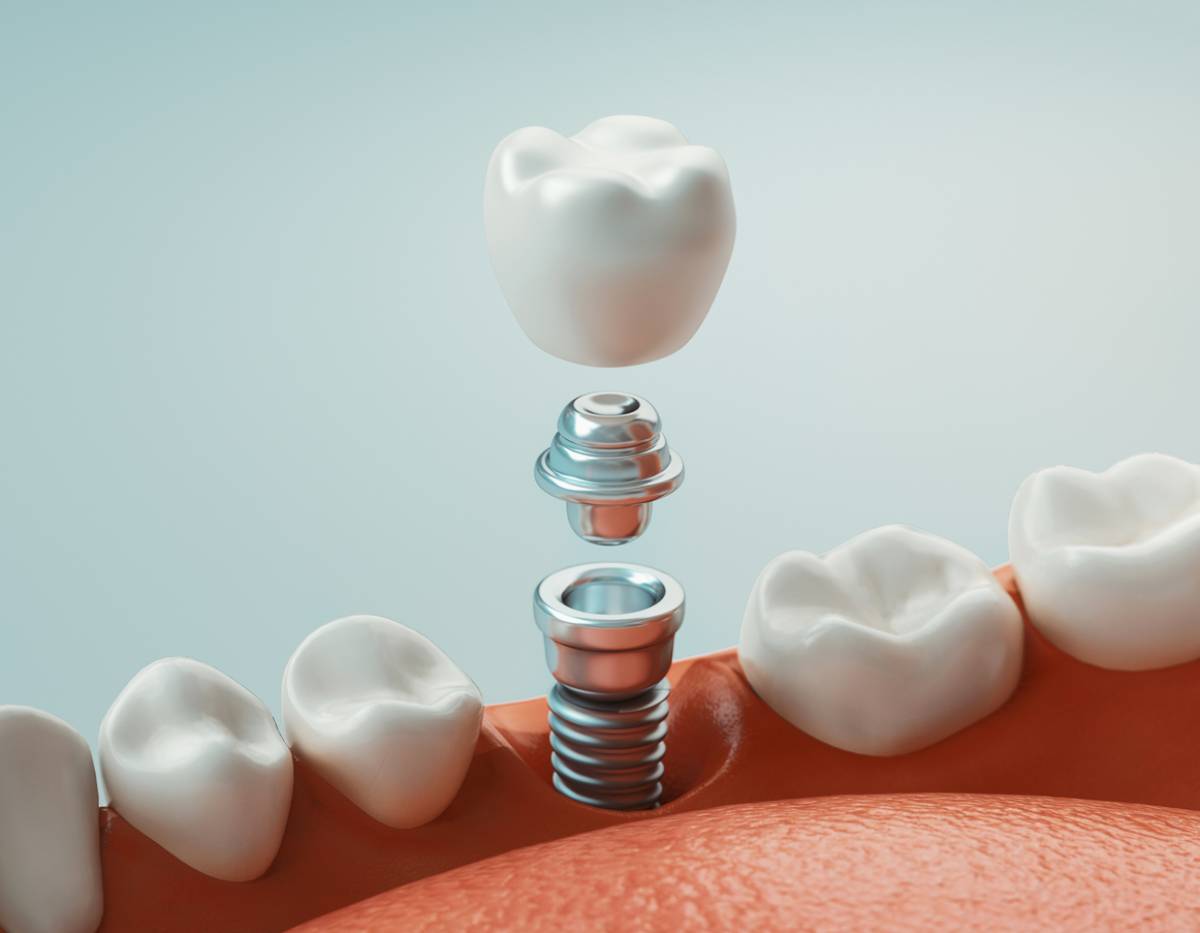Dental implants are a permanent and reliable form of tooth replacement. Given that they replace the entirety of your natural tooth from root to cusp, it is impossible for a dental implant to develop a cavity. However, that doesn’t mean a dental implant can’t be damaged by poor oral hygiene. If you aren’t brushing and flossing regularly, the crown of the implant, the surrounding gums, and adjacent teeth could all sustain permanent damage. But can dental implants get cavities?
Can My Dental Implants Get Cavities?
To prevent damage to your dental implants and the surrounding tissues, it’s important to understand how your dental implant works and what care is required.
The Construction of a Dental Implant
A dental implant is made of three distinct parts.
The Post:
The first segment of the dental implant is the post. This medical-grade metal piece is drilled directly into the jaw bone. This anchor gives the dental implant a strong foundation while helping to encourage your jaw bone to naturally remodel every time you chew. This keeps the jaw bone strong, making dental implants the best long-term solution for your oral health.
Unfortunately, it takes a month or so for the jawbone to regrow around the post. This means that the process of having a dental implant placed is quite a bit longer than other tooth replacement options. Your dentist in Irvine will discuss the overall treatment plan based on your current oral health and the condition of the jawbone at the placement location. Has your jawbone lost significant mass. Then your dentist may suggest a bone graft or an alternative tooth replacement option.
The Abutment:
The second segment of the dental implant is the abutment. This small metal piece acts as the link between the post and the crown. In some cases the abutment is placed at the same time as the post. However, some dentists prefer to place the abutment separately. By the time the process is over, both the post and the abutment will be completely hidden beneath the gumline.
The Crown:
The final segment is the only visible portion of the dental implant. The crown imitates the look and feel of a natural tooth. These custom-made pieces are created using dental molds. The result is a highly realistic prosthetic tooth made from porcelain that perfectly fits your bite. To make sure the dental implant is as realistic as possible, your dentist will even color match the surrounding teeth.
Oral Hygiene and Your Dental Implant
It’s true that your dental implant can’t develop a cavity, but you still need to be practicing normal oral hygiene. Despite being made of porcelain, the crown of your dental implant can still be stained and damaged if you don’t take proper care of your teeth. If you want your dental implants to last, then you will need to brush twice a day, floss once a day, and visit your dentist every six months.
Once you get your dental implants in Irvine, you will have to be wary of staining foods and gingivitis. The crown of your dental implant will not respond to normal whitening treatments, so you will need to treat staining drinks and foods with extra caution. By using straws and brushing immediately after consuming something staining you can limit the chances of your crown being visibly damaged.
The only other serious issue you have to look after is your gum health. The gums around your dental implant still have to be flossed. The bacteria that gets trapped underneath the gumline could easily lead to gingivitis. Left untreated, gingivitis can cause a serious infection that could spread to other parts of the body.
Caring for Your Dental Implants
The good news is that caring for your dental implants is no harder than caring for your natural teeth. By taking a few minutes a day to brush and floss you’ll ensure that your dental implants will last as long as possible while preserving your smile and jawbone health.

